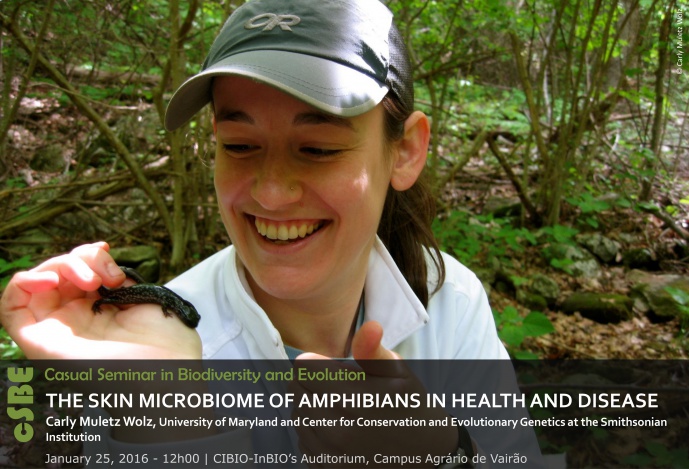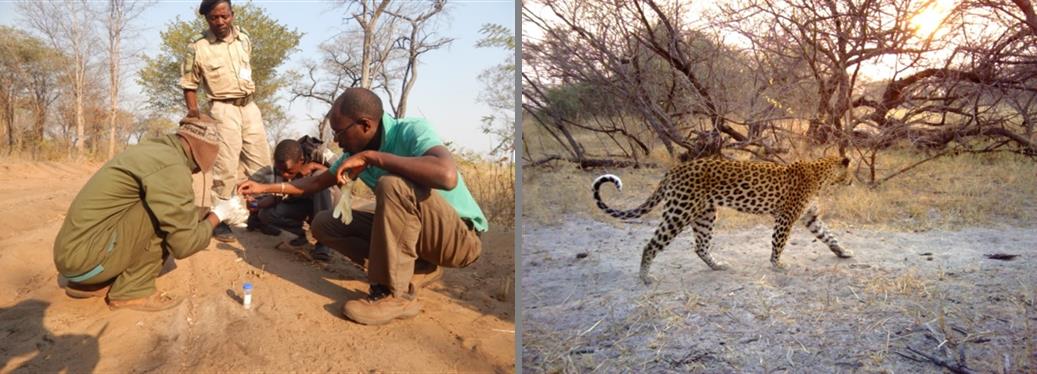THE SKIN MICROBIOME OF AMPHIBIANS IN HEALTH AND DISEASE

CASUAL SEMINAR IN BIODIVERSITY AND EVOLUTION

Skin microbial communities interact with other microbes and with the host in multiple ways that mediate risk of disease. In amphibians, the presence of cutaneous, antifungal bacteria has been associated with reduced infection burden, weight loss and mortality caused by the deadly fungal pathogen, Batrachochytrium dendrobatidis. Yet, we know little about how environmental factors and innate host factors influence skin bacterial diversity, and how this relates to disease risk. To examine this, I conducted lab and field studies with Plethodon salamanders and paired traditional microbiological culturing methods with molecular approaches. I will present findings from these studies on how ecological and evolutionary factors influence associations among amphibian hosts, their skin microbiome and the pathogen B. dendrobatidis.
Carly Muletz Wolz’s research focuses on (i) identifying the factors that influence microbial diversity, (ii) quantifying the functional contribution of the microbiome to host health and disease, and (iii) determining how we can utilize microbes in conservation strategies. She is currently a Ph.D. candidate at the University of Maryland and a researcher at the Center for Conservation and Evolutionary Genetics at the Smithsonian Institution.
[Hosts: Kevin Mulder and Miguel Carretero, Applied Phylogenetics]
Image credits: Carly Muletz Wolz